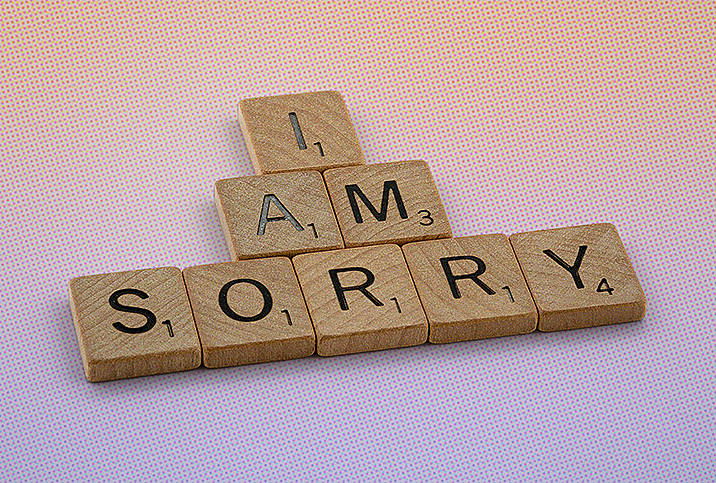Understanding Married Life

For many couples, marriage feels like the finish line, the end goal, that moment where you ride into the sunset. The reality is that marriage is a legally binding contract between two people that ties them together financially. Knowing your partner and preparing yourself for married life can help to ensure this decision will last a lifetime.
Introduction to marriage
Although love tops the list of why many couples get married, other reasons such as financial security, commitment, companionship and having children follow closely behind in a 2019 Pew Research survey. While marriage rates are on the rise, the number of couples sharing a home without being married is also on the upswing, leading many to ask: Why get married?
Religious traditions and cultural expectations are certainly key to many matrimonial decisions. Legal matters are a top consideration as well. When end-of-life decisions and parental custody become a concern, being married is the best way to ensure both partners have equal rights to the assets, children and decision-making.
Without that marital contract, when one partner dies or if the relationship ends, the property goes to the purchaser, and custodial rights may be a legal mess, especially in a same-sex partnership where one or both partners may not be a biological parent. These legal nightmares are what make the court-sanctioned validity of same-sex marriages so important.
Regardless of the situation, marriage provides many benefits outside of financial protection. Marriage at its most simplistic level is committing to another person and choosing to spend a life together. For many couples, this transition takes an adjustment that can cause many rough patches in the first year of marriage.
Adjusting to married life
Marriage is not the fairytale many have been led to believe. The engagement ring is only the beginning of the story, not the climax; the honeymoon is over before you know it; and the happily-ever-after is now going to be your all-day, every-day, decades-long job.
Some partners may place high expectations on a new spouse because they think the fun, romantic date nights of the dating phase will be a constant perk of being married. This illusion will likely be quickly dashed. For partners who live together before getting married, this first-year adjustment can be a bit smoother. Keep in mind, though, that couples who lived together before marriage are just as likely to get divorced. This should be a reminder to every couple that working on the marriage is essential to keeping it strong.
The best way to get past the first-year adjustment is to break away from the stereotypes of marriage and build a life that works for both of you. Remember, you are both trying to navigate a major transition that will reshape the rest of your life. Be patient with your partner, and accept them for who they are. Show kindness when mistakes happen because they will— frequently. Eventually, a daily routine will emerge, and many battles will subside. The success of a marriage is largely dependent on the bond of the partners, so making time to care for one another and understand each other’s perspective is essential for preventing major conflicts.
Tips for a happy marriage
Much of married life is just like any average day—getting up, going to work and coming home. Except there is now another person waiting for you (or for you to wait for) at the end of the day. Knowing this person deeply and thoroughly and accepting their traits are essential parts of having a happy marriage, and the best marriage tips reflect this:
- No one has all the answers. Almost all the choices you make in life impact your partner, so discussing choices is essential to moving forward without conflict. The more you communicate and collaborate on important decisions, the easier it is to cohabitate with less conflict.
- Conflict is inevitable. Regardless of how perfect your partnership may seem, it’s impossible for two people to share one living space for any length of time and not have a disagreement. Fighting is not a sign of a bad marriage. However, if fights become constant or the same conflict flares up continually, it might indicate a deeper problem that needs to be addressed, potentially with the help of a licensed marriage counselor.
- Know when to walk away from a fight. This tip is a tough one because, in any disagreement, both parties want to be right. The fight is often about the win, not necessarily about solving the problem. To make matters worse, when agitated, humans default to a fight-or-flight response, so we often react to the situation without thinking clearly, and this can cause many partners to say hurtful things that can be damaging to the marriage. This reactive tendency can leave us with a mess to clean up if we’re not careful.
To avoid this, when you feel your temper flaring, accept that you are not thinking clearly, tell your partner that you need to take a moment to cool off, and table the discussion until later. This is a great strategy to allow both you and your partner time to consider the issue in a neutral setting. Just remember that you must come back to the problem and solve it. Leaving unresolved issues in a marriage can lead to major problems later on. - Admit when you’re wrong. Stubbornness in a marriage can often make a conflict linger long after it has been resolved because neither party wants to admit they acted irrationally. Defeat is not easy to accept, but sometimes when we weigh the facts and what’s best for the marriage, we may find out that we were wrong. This doesn’t mean you failed, it means you’re the bigger person for accepting that you’re a human being who sometimes makes mistakes. Marriage is not a competition; it’s a partnership.
- Don’t expect your partner to change. For better or worse, the person you married is likely to stay the same. It’s comforting that the best traits of your partner will always be there, but it can be frustrating that your partner’s negative traits may still be there 30 years from now. However, acceptance is key: Expecting a partner to change after marriage is the best way to set yourself up for failure.
- Keep it fun. While a great marriage takes work, there should be plenty of time for enjoying each other’s company and experiencing new things together. Life can be tedious and painful, and having a partner to help you through tough times is one of the great comforts and joys of marriage. But you should also add new and exciting ideas and activities as often as possible. Take your partner out on a date or spend a romantic evening in. Fresh inspiration will help keep the joy alive and build lasting memories to outweigh even the darkest moments.
When marriage ends
The sad truth of many marriages is that they will reach a natural end long before “til death do us part.” Whether it’s because of incompatibility or too many unresolved issues, the hardest part of a failed marriage is admitting when it’s time to call it quits.
Frequent fighting is common, but when these fights result in character assassination, abusive language, manipulation or physical confrontation, the marriage may have become toxic, and without (or even with) the help of a professional, the healthiest decision might be divorce.
No matter how strong the marriage may seem in the beginning, without regular communication and both partners committed to making the marriage last, it will eventually fail. Taking the time to work through problems, working together as a team and showing compassion for your partner are all essential elements of a relationship that will last.
The best part of marriage is spending the rest of your life with your best friend, but you should never take your spouse for granted. Making the marriage last requires investing in your relationship and growing together as a couple.


















